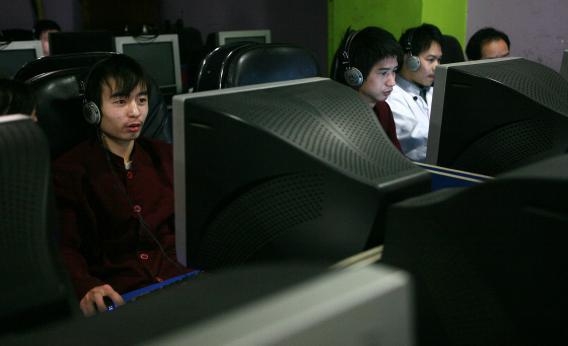Information on the specific workings of China’s Internet censorship – the so-called great firewall – can be hard to come by, but Harvard political scientists Gary King, Jennifer Pan, and Margaret Roberts, devised a novel way to look at the system from the inside.
As part just-released experimental study, they actually created their own fake social network, and asked tech support for help in setting up content guidelines:
We looked for a way to learn more, including changing the incentives of our sources. We did this by creating our own Chinese social media site from inside China, using all the infrastructure, procedures, and rules that existing sites must follow. To do this, we purchased a URL, contracted with a company that provides hosting services, and arranged with another company to acquire the software necessary to establish a community discussion forum. We downloaded the software and installed it ourselves. This infrastructure gave us complete access to the software and its documentation so that we could fully understand and utilize its functionality.
Importantly, we also had easy access to support employees at these firms, who were happy to help show us how to censor so that our website remained in accordance with government requirements. Thus, instead of trying to convince people to spare some of their time for researchers, we were able to have conversations with employees whose jobs it is to answer questions like those we posed, and fortunately they seem quite good at their jobs. We then customized the software, submitted posts ourselves, and used the software’s mechanisms to censor some. We took every step we could short of letting individuals in China post on the site to avoid causing any interference to actual social media discourse.
What they found was that the service providers and software firms provide a huge variety of choice in censorship methods, ranging from blocking certain keywords, to delaying publication on posts until they can be reviewed, to blocking certain users by IP address, to filtering out posts based on length.
In other words, there isn’t a centralized set of guidelines banning any mention of Ai Weiwei, Tibet, or Tiananmen Square, companies are instituting their own guidelines in hopes of avoiding the government’s periodic crackdowns. As the MIT Technology Review put it, the experiment suggests that “China has created a kind of competitive market in censorship… Companies are free to run their censorship operations mostly as they wish, as long as they don’t allow the wrong kind of speech to flourish.”
Even when those companies are actually just undercover American academics.
